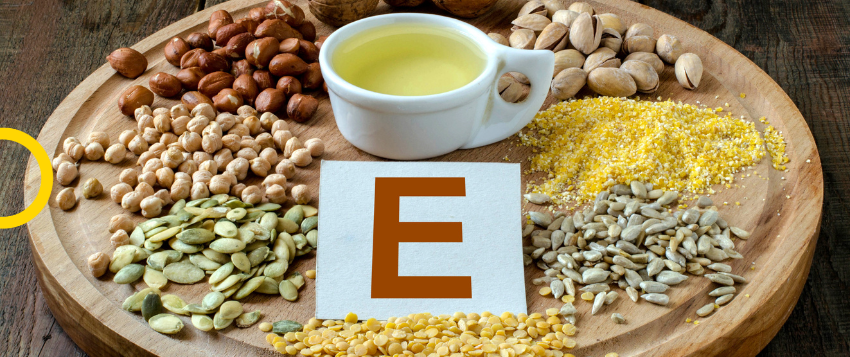As winter settles over South Africa, the colder temperatures bring with them an increased susceptibility to colds, flu, and other respiratory infections. Boosting your immune system during these months becomes essential for maintaining good health and warding off illness. One of the most effective ways to bolster your immune defences is through the intake of specific vitamins known for their immune-boosting properties. Here’s a closer look at the benefits of these vitamins and how they can help keep you healthy during the winter season.
Vitamin C: The Immunity Powerhouse
Benefits:
- Antioxidant Protection: Vitamin C is a potent antioxidant that helps protect your cells from damage by free radicals, which are harmful molecules that can weaken the immune system.
- Enhanced White Blood Cell Function: It plays a crucial role in enhancing the function of phagocytes and T-cells, types of white blood cells that are essential for fighting off infections.
- Collagen Production: This vitamin is also vital for the production of collagen, which helps maintain the integrity of skin and mucous membranes – your body’s first line of defence against pathogens.
Sources:
- Citrus fruits (oranges, lemons, grapefruits)
- Bell peppers
- Strawberries
- Broccoli
- Spinach
Vitamin D: The Sunshine Vitamin
Benefits:
- Regulates Immune Responses: Vitamin D modulates the innate and adaptive immune responses. Deficiency in vitamin D is associated with increased susceptibility to infection.
- Anti-Inflammatory Properties: It helps reduce chronic inflammation, which can compromise the immune system and make you more vulnerable to infections.
Sources:
- Sunlight exposure (15-20 minutes a day can help your body produce vitamin D)
- Fatty fish (salmon, mackerel)
- Fortified dairy products and cereals
- Egg yolks
Zinc: The Immune System’s Gatekeeper
Benefits:
- Immune Cell Development: Zinc is crucial for the normal development and function of cells mediating innate immunity, neutrophils, and natural killer cells.
- Antiviral Properties: It has been shown to reduce the severity and duration of cold symptoms by inhibiting the replication of rhinoviruses, which cause the common cold.
Sources:
- Meat (beef, lamb)
- Shellfish (oysters, crab)
- Legumes (chickpeas, lentils, beans)
- Seeds and nuts (pumpkin seeds, cashews)
Vitamin A: The Immune Strengthener
Benefits:
- Maintains Mucosal Barriers: Vitamin A is vital for maintaining the health of mucosal barriers in your respiratory tract, gut, and skin, which act as barriers to infection.
- Supports White Blood Cells: It plays a role in the production and function of white blood cells, which help capture and clear bacteria and other pathogens from your bloodstream.
Sources:
- Carrots
- Sweet potatoes
- Spinach
- Kale
- Apricots
Vitamin E: The Immune Modulator
Benefits:
- Antioxidant Defence: Vitamin E is a powerful antioxidant that helps combat oxidative stress, which can weaken the immune system.
- Enhanced Immune Function: It supports the function of T-cells, an important component of the adaptive immune system.
Sources:
- Nuts and seeds (almonds, sunflower seeds)
- Spinach
- Broccoli
- Vegetable oils (sunflower, safflower, and olive oil)
Conclusion
During the winter months in South Africa, ensuring that your body has an adequate supply of these essential vitamins can significantly enhance your immune system’s ability to fight off infections. Incorporating a variety of fruits, vegetables, nuts, seeds, fish, and lean meats into your diet will help you achieve a balanced intake of these nutrients. Additionally, safe sun exposure and possibly supplementation, as advised by a healthcare professional, can further support your immune health.
By prioritising your intake of these immune-boosting vitamins, you can better protect yourself against the common cold, flu, and other winter ailments, allowing you to enjoy the colder months with greater health and vitality.
Disclaimer – Healthi and its associates offers health and fitness information and is designed for educational and entertainment purposes only. You should consult your physician or general practitioner before beginning a new fitness program. You should not rely on this information as a substitute for, nor does it replace, professional medical advice, diagnosis, or treatment. If you have any questions or concerns about your health, you should always consult with a physician, general practitioner, or other qualified healthcare professional. Do not disregard, avoid or delay obtaining medical or health related advice from your healthcare professional because of something you may have read on our publications or lectures. The use of information provided though the urban wellness service is solely at your own risk and is not medical or healthcare advice.










